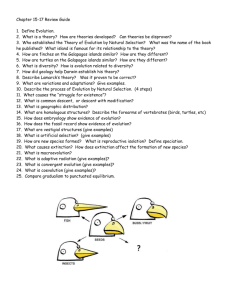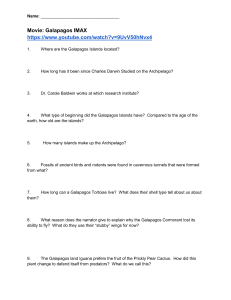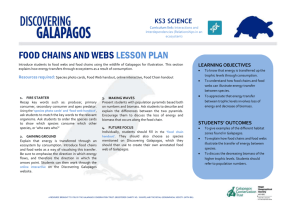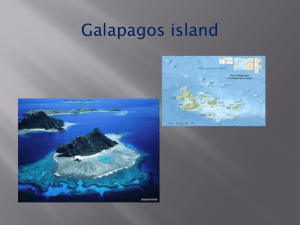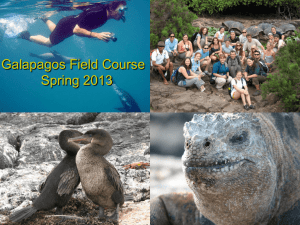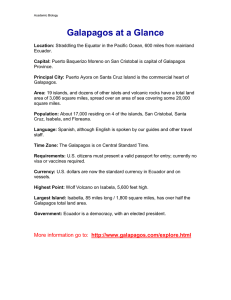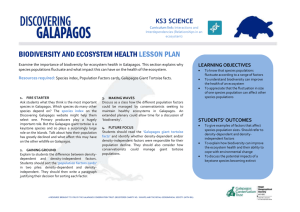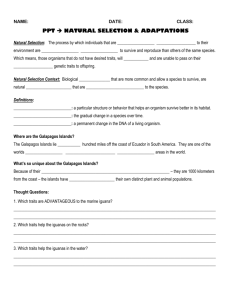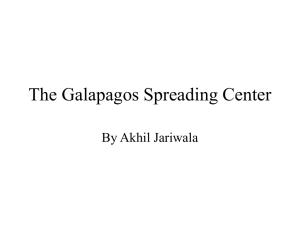1A2 Animals and Plants MSWord Lesson Plan SCI KS3
advertisement
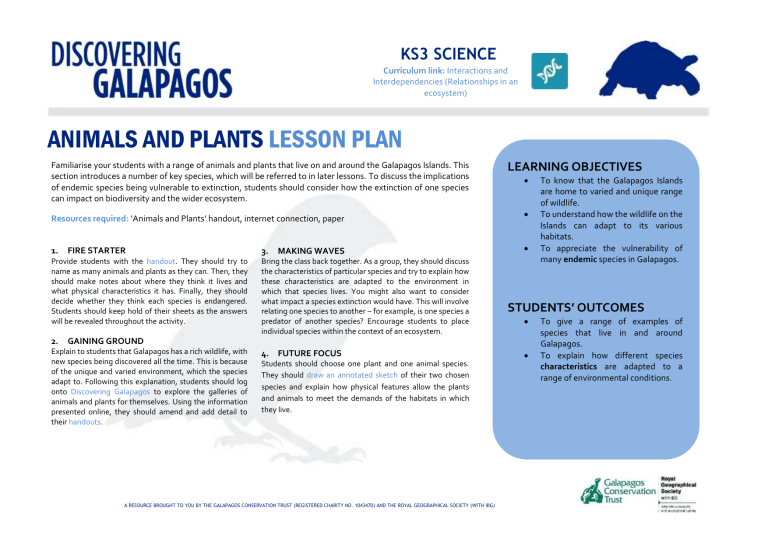
KS3 SCIENCE Curriculum link: Interactions and Interdependencies (Relationships in an ecosystem) ANIMALS AND PLANTS LESSON PLAN Familiarise your students with a range of animals and plants that live on and around the Galapagos Islands. This section introduces a number of key species, which will be referred to in later lessons. To discuss the implications of endemic species being vulnerable to extinction, students should consider how the extinction of one species can impact on biodiversity and the wider ecosystem. Resources required: ‘Animals and Plants’ handout, internet connection, paper 1. FIRE STARTER Provide students with the handout. They should try to name as many animals and plants as they can. Then, they should make notes about where they think it lives and what physical characteristics it has. Finally, they should decide whether they think each species is endangered. Students should keep hold of their sheets as the answers will be revealed throughout the activity. 2. 3. MAKING WAVES Bring the class back together. As a group, they should discuss the characteristics of particular species and try to explain how these characteristics are adapted to the environment in which that species lives. You might also want to consider what impact a species extinction would have. This will involve relating one species to another – for example, is one species a predator of another species? Encourage students to place individual species within the context of an ecosystem. LEARNING OBJECTIVES STUDENTS’ OUTCOMES GAINING GROUND Explain to students that Galapagos has a rich wildlife, with new species being discovered all the time. This is because of the unique and varied environment, which the species adapt to. Following this explanation, students should log onto Discovering Galapagos to explore the galleries of animals and plants for themselves. Using the information presented online, they should amend and add detail to their handouts. 4. FUTURE FOCUS Students should choose one plant and one animal species. They should draw an annotated sketch of their two chosen species and explain how physical features allow the plants and animals to meet the demands of the habitats in which they live. A RESOURCE BROUGHT TO YOU BY THE GALAPAGOS CONSERVATION TRUST (REGISTERED CHARITY NO. 1043470) AND THE ROYAL GEOGRAPHICAL SOCIETY (WITH IBG) To know that the Galapagos Islands are home to varied and unique range of wildlife. To understand how the wildlife on the Islands can adapt to its various habitats. To appreciate the vulnerability of many endemic species in Galapagos. To give a range of examples of species that live in and around Galapagos. To explain how different species characteristics are adapted to a range of environmental conditions.
